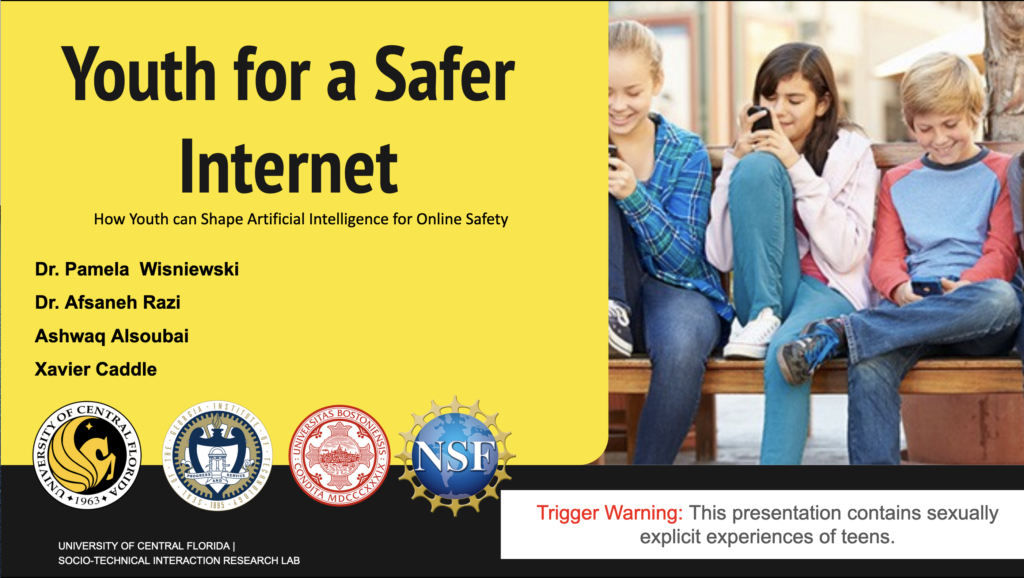Congratulations to Dr. Pamela Wisniewski, Ashwaq Alsoubai, Dr. Afsaneh Razi, and Xavier Caddle who presented at the CRASSH Webinar: Children and Artificial Intelligence: risks, opportunities and the future at the University of Cambridge.
The title of the presentation was “Youth for a Safer Internet: How Youth can Shape Artificial Intelligence for Online Safety.”
Abstract: In our presentation, we will present the AI efforts for adolescents’ online safety conducted by researchers in the Socio-Technical Interaction Research (STIR) Lab directed by Dr. Pamela Wisniewski. In our work, we adopt a human-centered approach for protecting teens by empowering them to join as stakeholders in building AI systems. Through an NSF-funded project, we collected a dataset of teens’ social media private conversations along with their risk assessments. The labels provided by youth served as ground truth to train machine learning classifiers to detect risks such as sexual risks, cyberbullying, and risky images. These classifiers were then integrated to build an AI Risk Detection Dashboard for youth to review and assess the classifiers’ risk predictions, which completes the cycle for empowering the teens in our AI risk detection efforts. Overall, our research contributes to the field of adolescent online safety and machine learning by taking a human-centered approach to truly understand the problem context and determine a meaningful ground truth of the risky behaviors being detected through automated AI approaches. Our collaborators in this project are Dr. Munmun De Choudhury, an Associate Professor at Georgia Tech, and Dr. Gianluca Stringhini, an Assistant Professor at Boston University.

